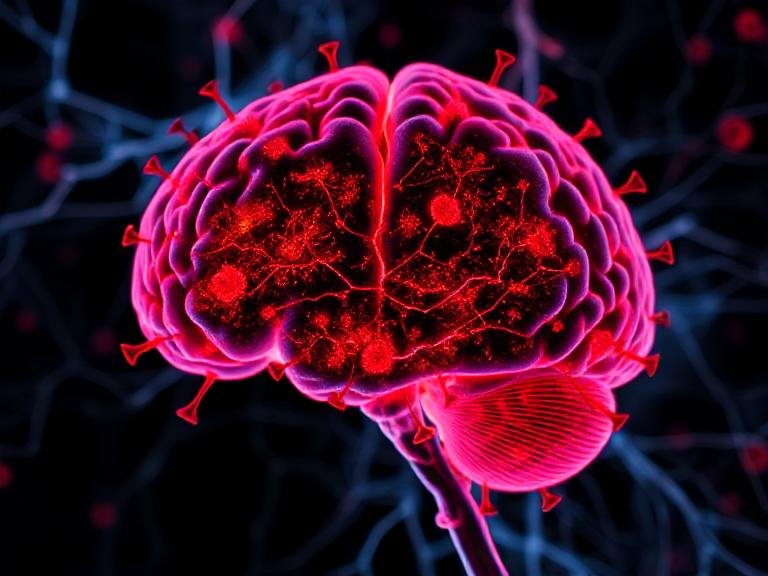
New Study Links Schizophrenia with Possible Viral Presence in Brain Tissue
A new study suggests that the hepatitis C virus (HCV) may play a role in certain psychiatric disorders, including schizophrenia and bipolar disorder . While scientists have long suspected a connection between viral infections and mental health conditions, direct evidence of viruses in the human brain has been scarce — until now.
In a recent study led by researchers at Johns Hopkins University , traces of 13 different viral species were found in the brain lining — specifically in the choroid plexus — of individuals diagnosed with mental health disorders.
Among these, hepatitis C virus showed the strongest and most statistically significant association with schizophrenia and bipolar disorder compared to healthy controls.
🔹 Why the Brain Lining Was Studied
The choroid plexus is a key part of the brain’s protective system. It produces cerebrospinal fluid , which cushions the brain and spinal cord, removes waste, and regulates the exchange of substances between the brain and bloodstream.
Because it acts as a barrier and filter , it’s also a common target for viruses trying to enter the central nervous system.
Given the lack of viral evidence found in the brain tissue itself in previous studies, the research team focused their search on this outer layer , hoping to uncover hidden clues.
They analyzed postmortem brain samples from individuals with schizophrenia , bipolar disorder , and major depression , as well as control samples from unaffected individuals. The samples were sourced from the Stanley Medical Research Institute .
Using advanced sequencing tools like the Twist Comprehensive Viral Research Panel , which can detect over 3,000 known viruses, the researchers uncovered a surprising range of viral traces — especially in those with schizophrenia and bipolar disorder.
🔹 What the Findings Reveal
The most notable discovery was the presence of hepatitis C virus (HCV) in the choroid plexus of affected individuals. Compared to the control group:
- 3.5% of schizophrenia patients had detectable HCV
- 3.9% of bipolar disorder patients showed HCV presence
- Only 1.8% of those with major depression and 0.5% of controls had the virus
This suggests a stronger association between HCV and more severe psychiatric disorders.
Interestingly, even though the hippocampus — the brain region responsible for learning, memory, and emotion — was free of the virus, gene expression changes were still observed in that area. This implies that even viruses located outside the brain tissue might still influence brain function from a distance.
🔹 What This Could Mean for Treatment
The researchers stress that HCV is not the sole cause of schizophrenia or bipolar disorder — nor is it present in all cases. However, the discovery opens a new door for targeted treatment in a subset of patients.
Dr. Sarven Sabunciyan , a neuroscientist at Johns Hopkins and one of the study’s authors, said:
“Our findings show that it’s possible that some people may be having psychiatric symptoms because they have an infection. Since hepatitis C is treatable, there may be a group of patients who could benefit from antiviral therapy instead of psychiatric medications alone.”
This could mark a paradigm shift in how some mental health conditions are understood and treated.
🔹 What’s Next?
While this study provides important new insights, more research is needed to:
- Confirm the mechanism by which HCV might influence brain function
- Investigate whether other viruses play similar roles
- Explore the potential of antiviral treatments in psychiatric care
The findings were published in Translational Psychiatry , and they represent a promising step toward bridging the gap between infection and mental health .





